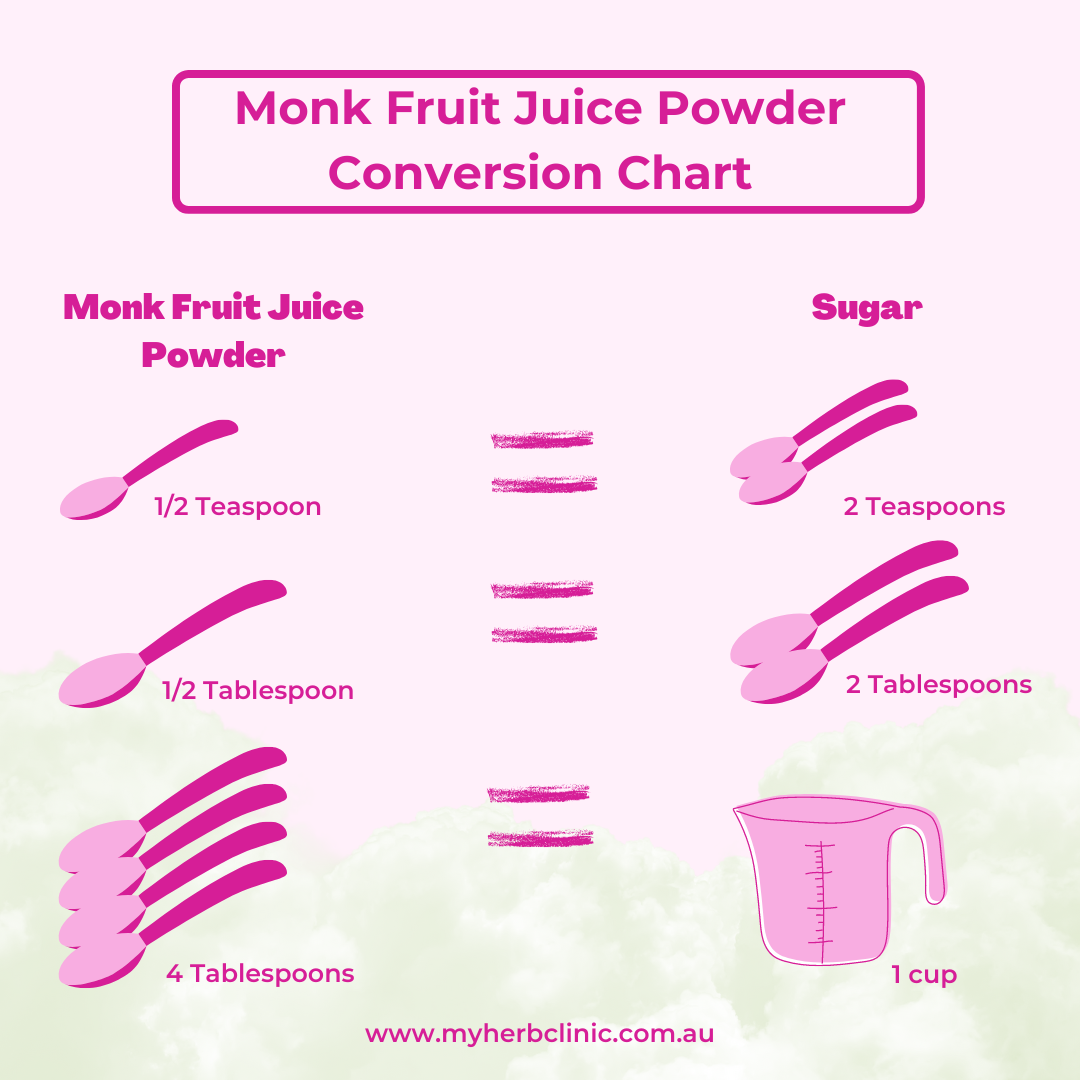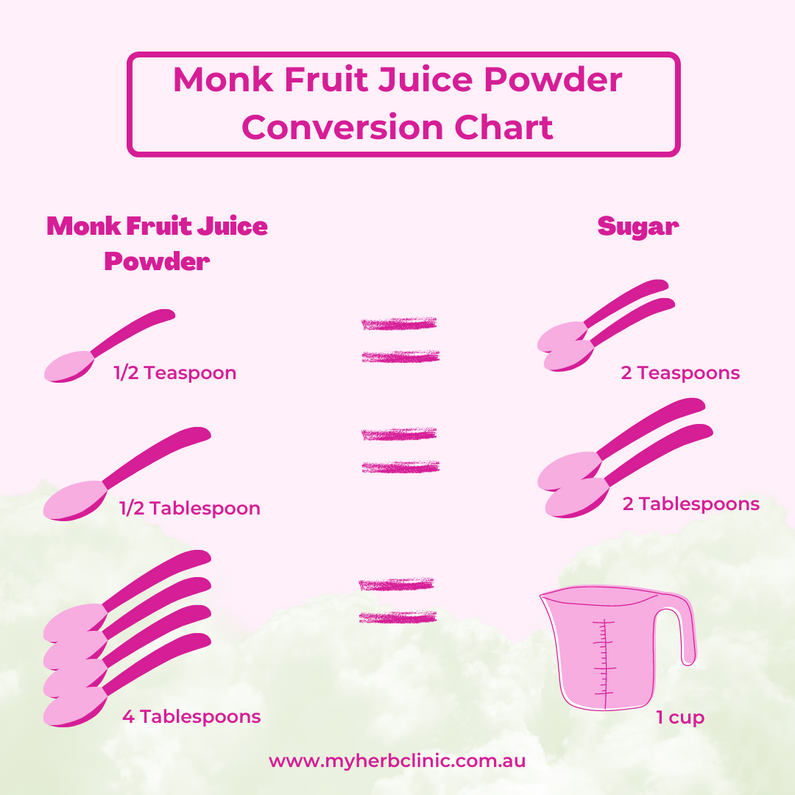What is Monk Fruit Juice Powder?
Monk Fruit Juice Powder is a natural extract from Monk Fruits, also known as Luo Han Guo or Buddha Fruits, and are native to Southeast Asia. The Fruit is juiced, and the juice is dried to form a powder which is naturally intensely sweet.
While Monk Fruit does naturally contain sugars like fructose and glucose, it is not very high in sugar with less than 3g of sugar per 100g of powder, and the intense sweetness actually comes from naturally occurring antioxidants called Mogrosides that are unique to Monk Fruit. Mogrosides may exert antioxidant and anti-inflammatory actions, which have been studied in vitro, but are yet to be studied in humans as far as we can see. It is possible that they may increase insulin production also.
Monk Fruit is considered a safe sugar alternative and natural sweetener that does not appear to impact blood sugar levels in diabetics, however it is always important to monitor this, especially as there may be a slight increase in insulin output. It is also deemed to be safe in pregnancy and breast feeding.
How is Monk Fruit Sweetener different?
Products labelled ‘Monk Fruit Sweetener’ are usually mixed with other natural and synthetic sweeteners and fillers like erythritol, dextrose. It is important to check the list of ingredients and if you are after pure Monk Fruit Juice Powder, this should be the only ingredient listed in the product. Often the packaging and marketing are designed to make the product appear ‘all natural’ and ‘100% pure Monk Fruit’ and it is only on closer inspection you see there are extra ingredients.
How can I use Monk Fruit Juice Powder?
If you are switching from normal sugars to Monk Fruit Juice Powder,
it may take some trial and error to find a balance that works for your palate
and recipe. The powder can be used to replace sugar in hot and cold drinks and
as the sweet element in cooking and baking.
Generally ½ a teaspoon of the powder is equal to 2 heaped teaspoons of sugar,
and we have created a suggested conversion chart to guide the sugar swap. This
is only a guide, and we recommend some trial and error to find the balance that
works for your palate.

Recent Posts
-
Anti-Inflammatory Herbs You Can Add to Your Tea
Inflammation is a natural and essential part of the body’s defence system. In the short term, it hel …17th Feb 2026 -
How Scents Influence Mood & Focus
Scent is one of the most powerful and often overlooked tools in wellbeing. Long before we consciousl …21st Jan 2026 -
Morning Rituals That Help You Thrive Naturally
How you begin your morning shapes the rest of your day. Long before notifications, deadlines, and di …13th Jan 2026




